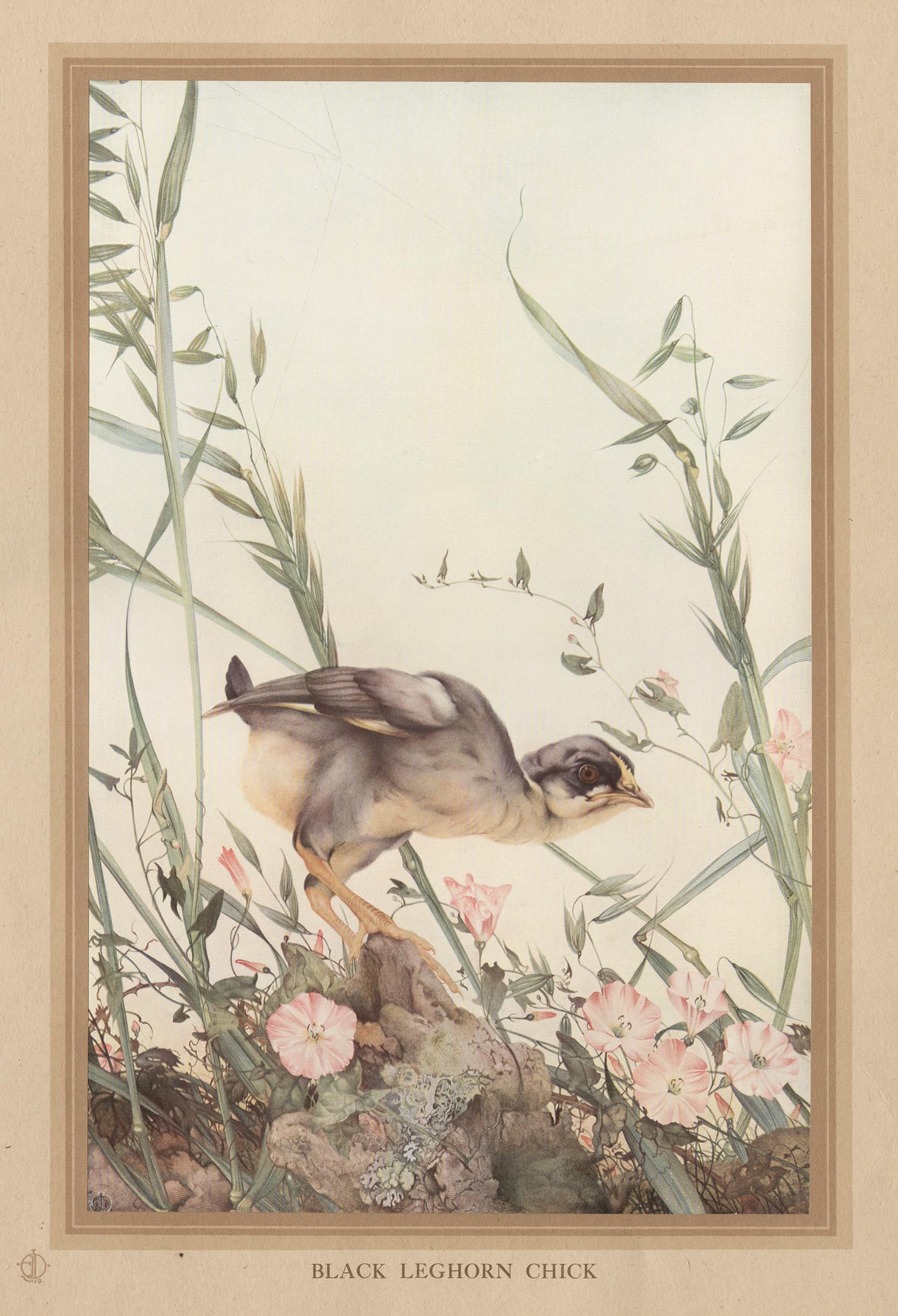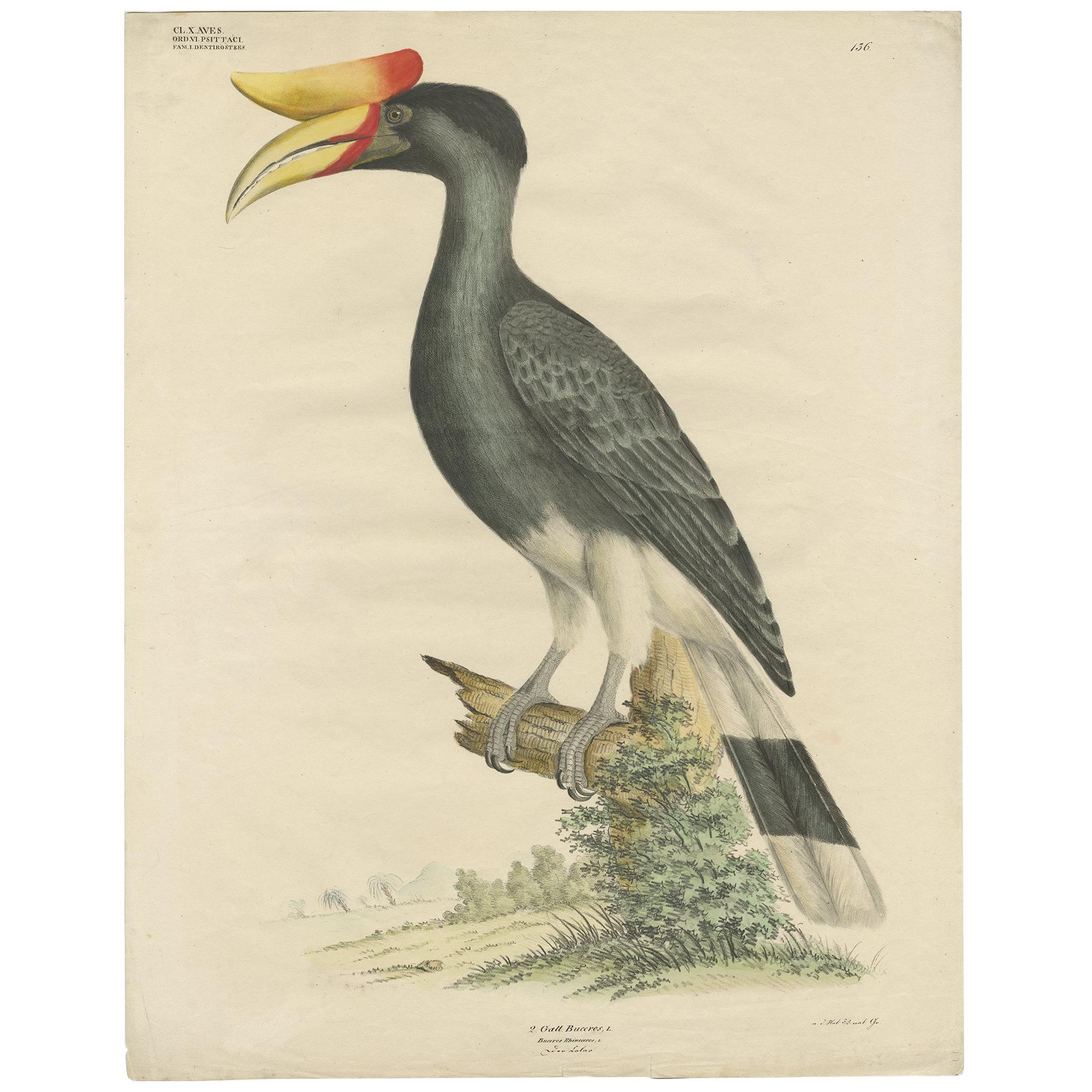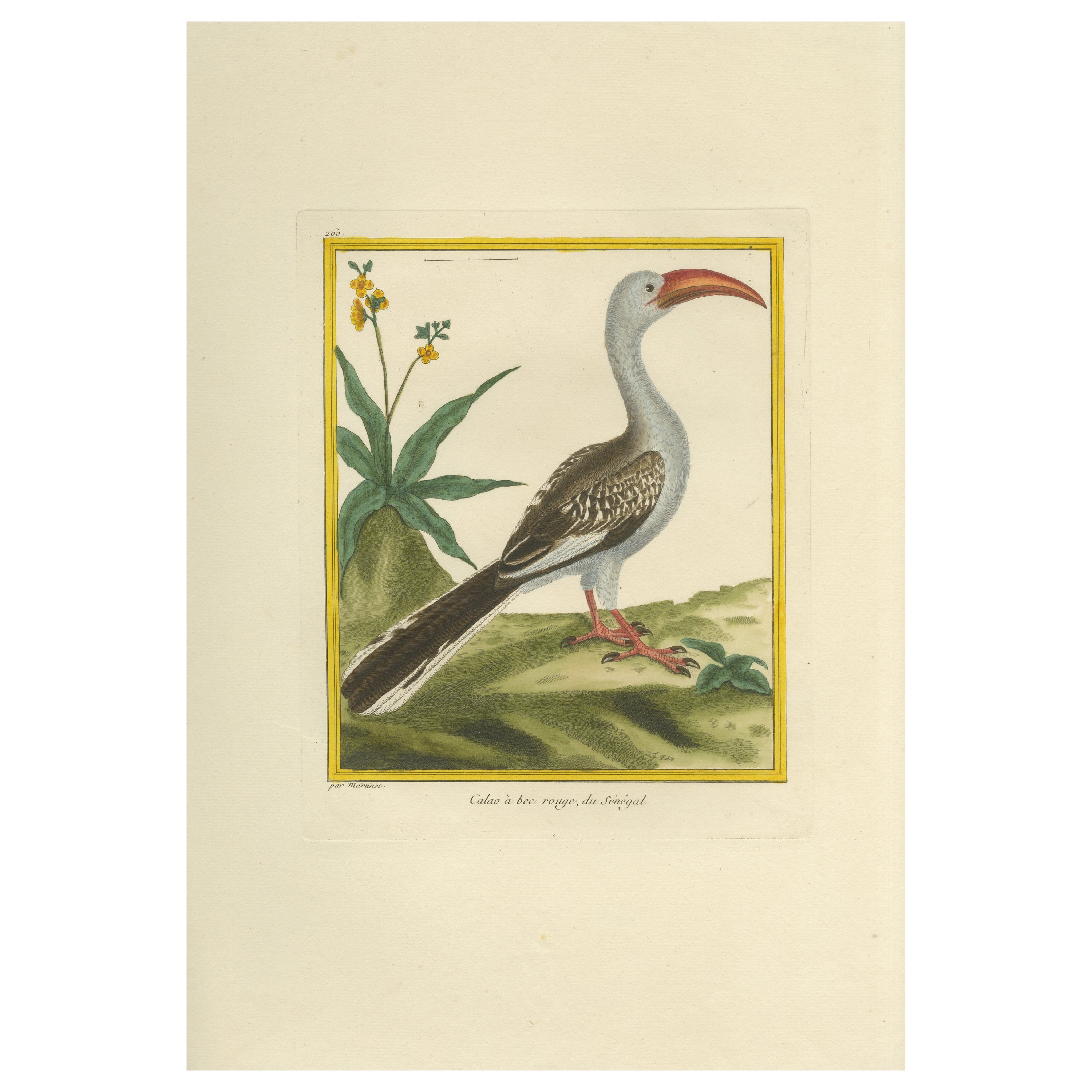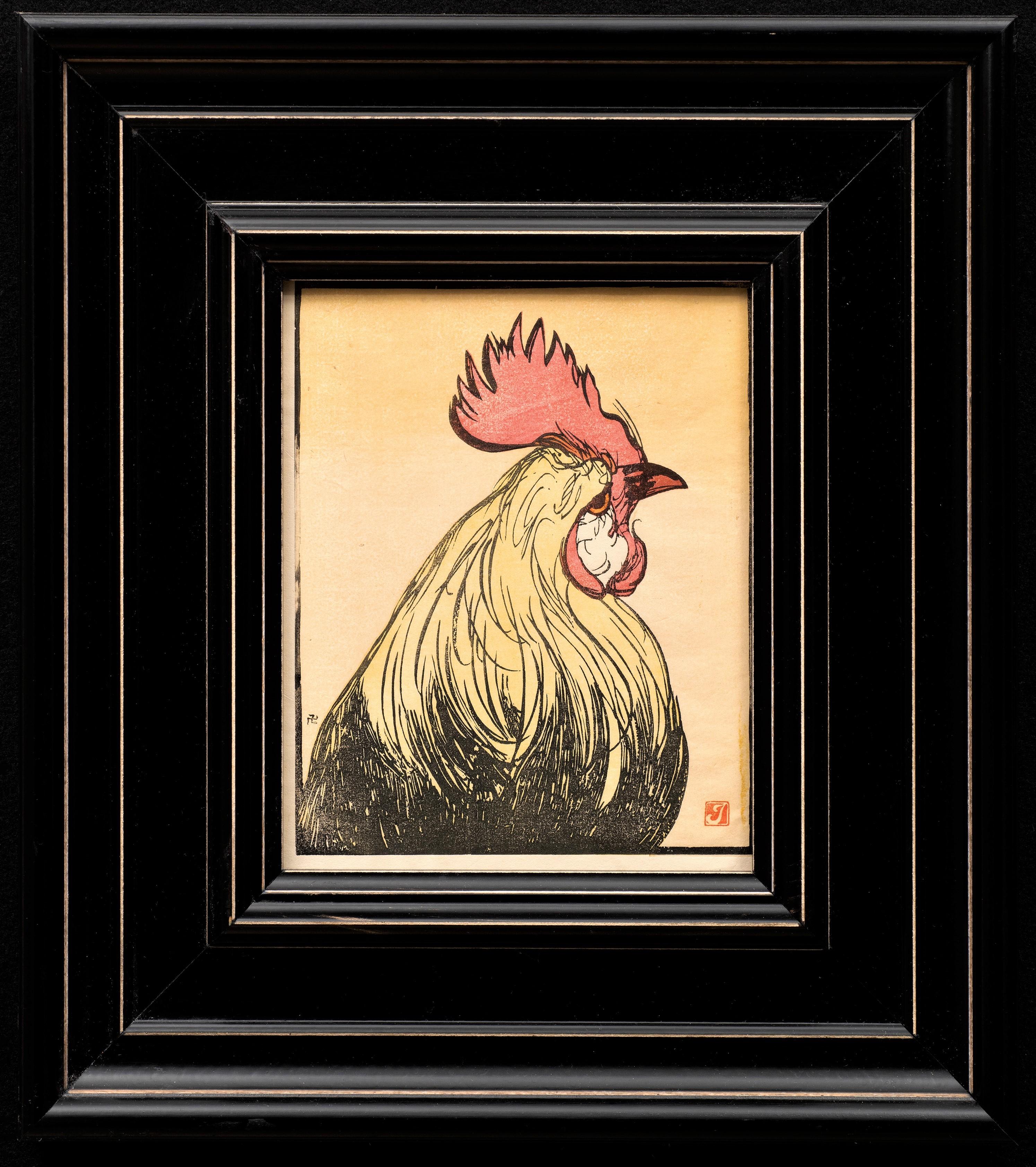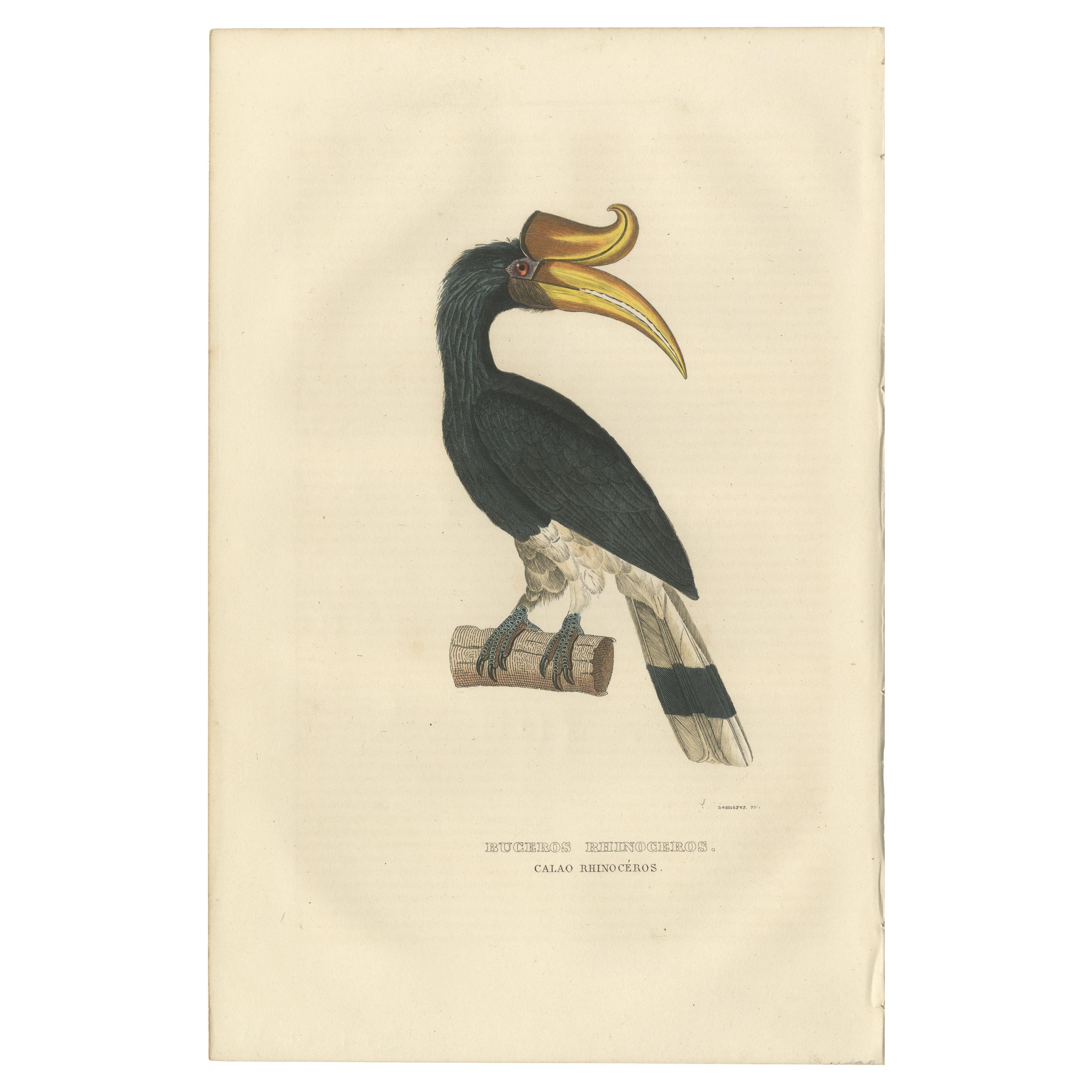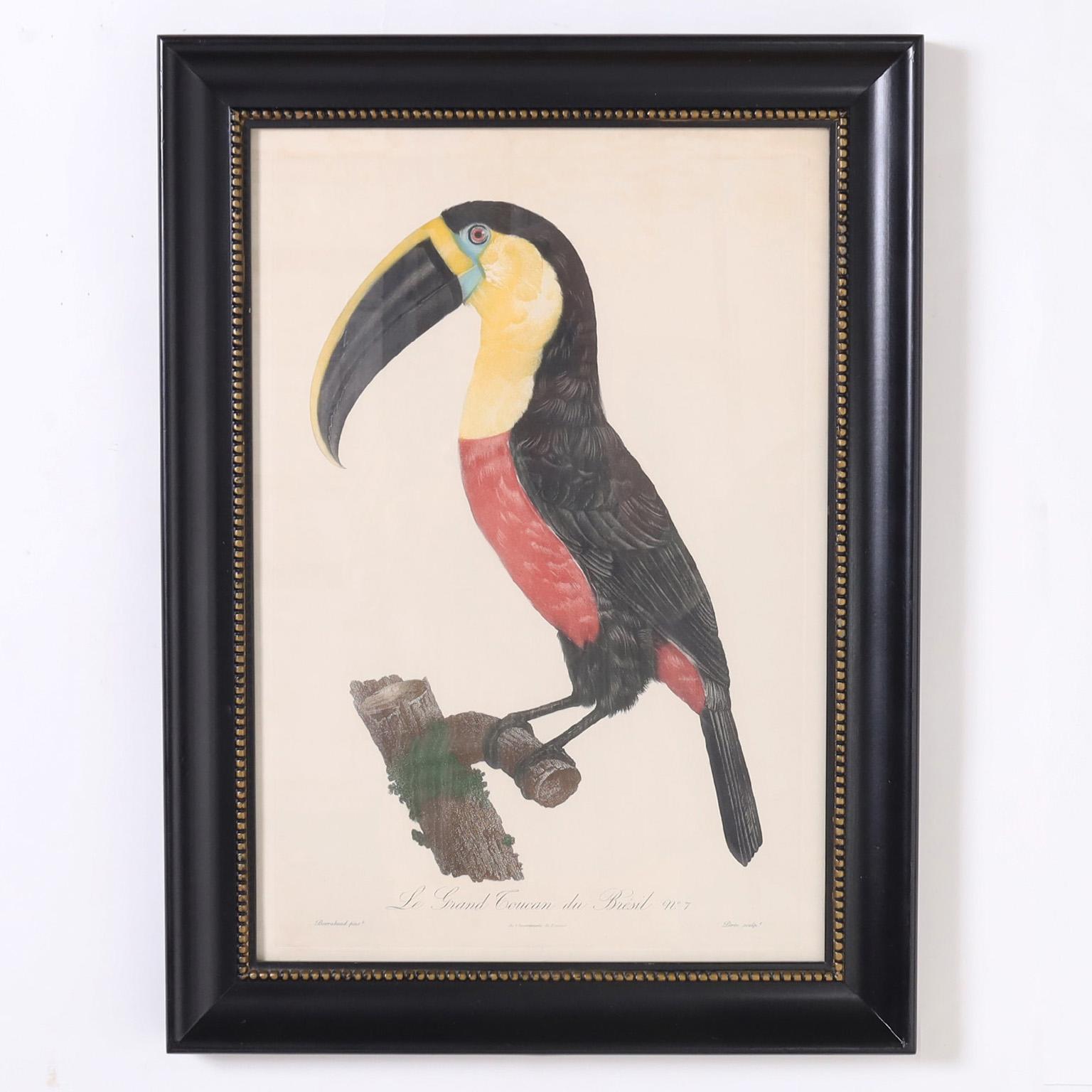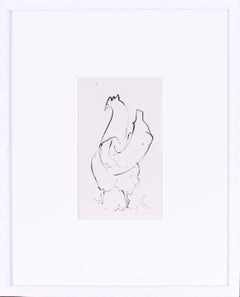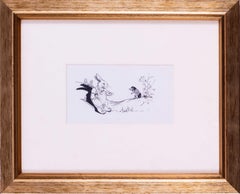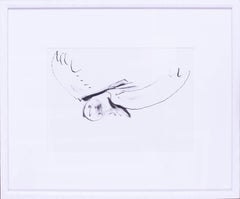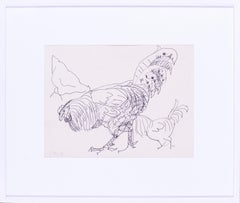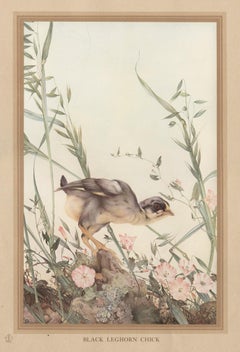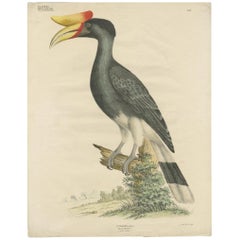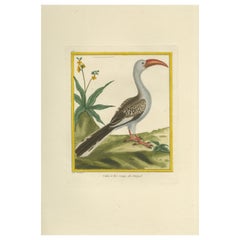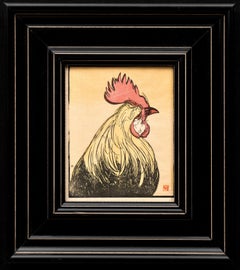Items Similar to Early 20th Century British illustration of a hornbill bird by Edward Detmold
Want more images or videos?
Request additional images or videos from the seller
1 of 9
Edward Julius DetmoldEarly 20th Century British illustration of a hornbill bird by Edward Detmold
$605.62
£440
€515.75
CA$826.79
A$919.77
CHF 482.16
MX$11,239.37
NOK 6,139.65
SEK 5,779.63
DKK 3,849.89
Shipping
Retrieving quote...The 1stDibs Promise:
Authenticity Guarantee,
Money-Back Guarantee,
24-Hour Cancellation
About the Item
Edward Julius Detmold (British, 1883 – 1957)
Hornbill
Pen and ink on paper
Signed with initials’ ED’ (lower right)
16.3 x 15.8 cm.
Edward Julius Detmold (21 November 1883 Putney, Wandsworth, Surrey - 1 July 1957 Montgomery) and his twin brother Charles Maurice Detmold (1883-1908) were prolific Victorian book illustrators.
Their parents were Edward Detmold and Mary Agnes Luck. Their father, an electrical engineer was chronically ill, and they lived with their uncle and guardian, Dr Edward Barton Shuldham, who saw to their tuition and was a noted collector of porcelain and Japanese woodprints of plants and animals. Dr Shuldham occupied a house in Upper Richmond Road, Putney, where the twins had been born. He ensured their interest in natural history and art, and created a nurturing environment for their precocious talents. They also spent time with another uncle, the painter Henry E. Detmold, who encouraged them in their art. Most of their prodigious energy was expended on depicting animal subjects and their work showed great influence from traditional Japanese art, Albrecht Dürer and later the Art Nouveau movement. They were exhibiting watercolours at the Royal Academy and the Royal Institute of Painters in Water Colours at the age of 13. Edward Burne-Jones praised their work and warned against the dangers of uniformity inherent in art schools.
The twins subsequently mastered the techniques of watercolour etching and of colour printing with copper plates, buying a printing press and producing their own proofs at home.
In 1898 they compiled a portfolio of colour etchings of animals and flowering plants done in the Japanese style. These were much sought after and were rapidly sold out. They collaborated on the etchings and illustrations for their first book Pictures From Birdland published in 1899. This book resulted from a number of drawings being shown in the autumn of 1897, to the publisher J. M. Dent, who was so impressed that the two brothers were asked to provide coloured illustrations for a book of his. The first title mooted was Alphabet of Birds, eventually becoming Pictures from Birdland. "Particularly noticeable are the early influences in the paintings, Edward's design for an osprey, with its unusual water effects, testifying to a Japanese contribution. Already apparent is that style in which a searching study of natural forms, especially bird plumage, is subordinated to decorative arrangement" - David Larkin (The Fantastic Creatures of Edward Julius Detmold) This was followed in 1900, by an exhibition at the Fine Art Society's Gallery in London.
Their next joint project was to produce a set of 16 watercolours for Rudyard Kipling's The Jungle Book published in 1903, by Macmillan. The success of their painting careers seemed assured, but Maurice ended his life by inhaling chloroform in April 1908, shortly before they were due to leave for a holiday in Sussex with Dr Shuldham, who had arranged that Maurice put down the household cats using the anaesthetic. Although stunned by the death of Maurice, Edward threw himself into his work.
The recognition accorded the twins' illustrations of Kipling's classic tale was extraordinary. Consequently, in 1909 Edward illustrated The Fables of Aesop, producing 23 colour plates and a host of pen & ink drawings. This proved so popular that in 2006 The Folio Society of London published a facsimile of the original Hodder & Stoughton edition.
In 1911, Detmold worked on illustrations for Maurice Maeterlinck's The Life of the Bee, Camille Lemonnier's Birds and Beasts and Florence Dugdale's Book of Baby Beasts. In the following year he worked on Maeterlinck's Hours of Gladness, in 1913, on Florence Dugdale's Book of Baby Birds and in 1919, on W. H. Hudson's Birds in Town and Village In 1919, he also produced a portfolio of Twenty Four Nature Pictures and, in 1921, on Our Little Neighbours and Jean-Henri Fabre's Book of Insects. Edward took up etching again in 1922 after Campbell Dodgson praised the Detmolds' work in The Print Collector's Quarterly.
1923 saw the appearance of Rainbow Houses. In 1924, Hodder & Stoughton published The Arabian Nights - Tales from the Thousand and One Nights, a book that had been planned from before Maurice's death. Again, an enduring interest in the book and particularly its illustrations, led to a 2003 facsimile edition from The Folio Society. Edward Detmold was painstaking in his work, missing deadlines so that a complete set of colour plates for Hans Christian Andersen's Fairy Tales were never used by Hodder and remained unpublished.[9] Detmold's meticulously finished images compare favourably with work by any of the Pre-Raphaelites.
Edward Julius became one of the most talented of illustrators, depicting animals and plants with an extraordinary understanding, and making use of fantasy settings of architecture and landscape. He lived in London, sharing a house with his mother, artist Sidney Laurence Biddle and musician Harold Hulls, until the outbreak of the Second World War, when the household moved first to Sussex and then to Montgomeryshire, and in his final years he retired completely from public life. He suffered a period of depression, brought on by failing eyesight, that resulted in his committing suicide, aged 73, by his shooting himself in the chest in July 1957.
- Creator:Edward Julius Detmold (1883 - 1957, British)
- Dimensions:Height: 6.42 in (16.3 cm)Width: 6.23 in (15.8 cm)Depth: 1.97 in (5 cm)
- Medium:
- Movement & Style:
- Period:
- Condition:Minor spots of dirt, recently remounted in thick white card, behind glass. In a simple black wood frame.
- Gallery Location:Petworth, GB
- Reference Number:1stDibs: LU540310094392
About the Seller
4.9
Gold Seller
Premium sellers maintaining a 4.3+ rating and 24-hour response times
Established in 2010
1stDibs seller since 2017
267 sales on 1stDibs
Typical response time: 10 hours
- ShippingRetrieving quote...Shipping from: Petworth, United Kingdom
- Return Policy
Authenticity Guarantee
In the unlikely event there’s an issue with an item’s authenticity, contact us within 1 year for a full refund. DetailsMoney-Back Guarantee
If your item is not as described, is damaged in transit, or does not arrive, contact us within 7 days for a full refund. Details24-Hour Cancellation
You have a 24-hour grace period in which to reconsider your purchase, with no questions asked.Vetted Professional Sellers
Our world-class sellers must adhere to strict standards for service and quality, maintaining the integrity of our listings.Price-Match Guarantee
If you find that a seller listed the same item for a lower price elsewhere, we’ll match it.Trusted Global Delivery
Our best-in-class carrier network provides specialized shipping options worldwide, including custom delivery.More From This Seller
View AllMid Century, modern British artist Sven Berlin, a strutting cockerel
Located in Petworth, West Sussex
Sven Berlin (British, 1911 - 1999)
A strutting cockerell
Pen and ink
8 x 4.5/8 in. (20 x 12 cm.)
(4)
Sven Berlin, born in Sydenham, London on 14th Septemb...
Category
20th Century Modern Animal Drawings and Watercolors
Materials
Paper, Ink, Pen
Female, British 20th Century illustrator Eileen Soper 'Rabbit was in one ....'
By Eileen Soper
Located in Petworth, West Sussex
Eileen Soper, RMS SWLA (British, 1905 – 1990)
Rabbit was in one of his dreamy moods
Signed ,inscribed with title (below mount)
Pen and ink
3.1/4 x 5.1/4 in. (9 x 16.2 cm.)
Provenanc...
Category
20th Century Other Art Style Animal Drawings and Watercolors
Materials
Ink, Pen
British St. Ives artist Sven Berlin 'Owl in flight' drawing, 20th Century
Located in Petworth, West Sussex
Sven Berlin (British, 1911 - 1999)
Owl in flight #2
Pen and ink
7.7/8 x 11 in. (19.7 x 28 cm.)
Sven Berlin, born in Sydenham, London on 14th September 1911, was an English painter, d...
Category
20th Century Romantic Animal Drawings and Watercolors
Materials
Ink, Pen
Cornish, St. Ives artist Sven Berlin, 'Strutting cockerel' drawing
Located in Petworth, West Sussex
Sven Berlin '(British, 1911 - 1999)
Strutting cock
Ink on paper
14.1/8 x 10.3/4 in. (36 x 27.3 cm.)
Sven Berlin, born in Sydenham, London on 14th Septembe...
Category
20th Century Modern Animal Drawings and Watercolors
Materials
Paper, Ink
Rare Art deco painting of Jane Marnac in a hat by Gesmar, gouache and ink 1921
By Charles Gesmar
Located in Petworth, West Sussex
A rare and exquisite gouache and watercolor painting of Jane Marnac by renowned Art Deco artist Charles Gesmar. The artwork features a topless Jane Marnac in an elegant, oversized ha...
Category
Early 20th Century Art Deco Nude Drawings and Watercolors
Materials
Paper, Ink, Watercolor, Gouache
British, graphic gouache painting of an eagle by George Alfred Boden, early 20th
Located in Petworth, West Sussex
George Alfred Boden (British, 1888 – 1956)
Eagle sunrise
Gouache on paper
Signed ‘G. A. Boden.’ (lower right)
19.3/4 x 12.1/2 in. (50 x 32.1cm.)
Now in a new white mount
Category
20th Century Modern Animal Drawings and Watercolors
Materials
Paper, Gouache
You May Also Like
'Black Leghorn Chick', English bird print after Edward Detmold, circa 1919
By After Edward Detmold
Located in Melbourne, Victoria
'Black Leghorn Chick'
Colour plate mounted on card with a printed border from 'The Detmold Nature Pictures', published circa 1919.
Edward J Detmold (1883-1957) was an important early 20th century...
Category
Early 20th Century Naturalistic Animal Prints
Materials
Color
Antique Bird Print of the Rhinoceros Hornbill by Goldfuss, circa 1824
Located in Langweer, NL
Antique bird print titled 'Gatt Buceros'. Large lithograph of the rhinoceros hornbill, a large species of forest hornbill (Bucerotidae). In captivity it can live for up to 35 years. ...
Category
Antique Mid-19th Century Prints
Materials
Paper
$958 Sale Price
20% Off
Original Antique Hand-Colored Engraving of the Red-billed Hornbill, circa 1770
Located in Langweer, NL
This genuine antique engraving is an illustration of a bird labeled as "Calao à bec rouge, du Sénégal," which translates to "Red-billed Hornbill from Senegal." The artwork is attribu...
Category
Antique 1770s Prints
Materials
Paper
$527 Sale Price
20% Off
Antique Rooster Woodblock Print circa 1910 by Prosper Alphonse Isaac
Located in SANTA FE, NM
Antique Rooster Portrait
Prosper Alphonse Isaac (France, 1858-1924)
Woodblock Print circa 1910
9 x 7 1/8 (15 1/4 x 17 frame) inches
The excellent book "The Great Wave: The Influence of Japanese Woodcuts on French Prints" which was an exhibition at The Metropolitan Museum of Art in 1974, recounts the phenomenal "cult of Japan" in late nineteenth-century France and reveals through direct comparisons its particular impact on the graphic work of Manet, Degas, Cassatt, Bonnard, Vuillard, Toulouse-Lautrec, and Gauguin. This print directly relates to the discovery of Japanese art most notably through the woodblock prints which found their way to the West oftentimes as stuffing or packing materials from consumer goods that were being imported to the West at the end of the 19th century.
Prosper-Alphonse Isaac was born in a well-to-do family. This gave him the means not only of leaving his native Calais to pursue a career as an artist in Paris, but also the means to acquire art. Isaac was particularly drawn to Japanese arts, which he collected avidly. Many of the objects he bought were eventually given to museums. As a printmaker Isaac started drawing seascapes in dry point, but eventually moved on to become one of only a handful of artists versed in color woodcut techniques in France. His compositions, generally small in scale, are heavily influenced by the arts of Japan. He printed small editions of these works. Aside from this artistic activity, Isaac was also an active textile decorator.
"This mark, which he borrows from Hokusaï and Totoya Hokkeï...
Category
1910s Art Nouveau Animal Prints
Materials
Ink, Laid Paper
Amazing Original Bird Print of the Rhinoceros Hornbill
Located in Langweer, NL
The Rhinoceros Hornbill, also known as the "Calao Rhinocéros" in French, is a remarkable and striking bird native to the forests of Southeast Asia, particularly found in Malaysia, In...
Category
Antique 1840s Prints
Materials
Paper
$229 Sale Price
20% Off
Antique Hand Colored Engraving of a Toucan by Jacques Barraband
By Jacques Barraband
Located in Palm Beach, FL
Striking 19th century engraving of a toucan hand colored by artist and naturalist Jacques Barraband (1767-1809 ) first published in Paris 1801. Presented under glass in a lacquered w...
Category
Early 19th Century Other Art Style Animal Prints
Materials
Glass, Wood, Lacquer
More Ways To Browse
Early 20th Century British Artists
Bird Illustrations
Bird Art Framed Set
Edward Masters Painting
H Hudson
Victorian House Drawing
Fairy Drawing
20th Century Japanese Watercolor Painting
Cat Illustration
Birds Of Great Britain
Jungle Animal Art
British Uniform
Japanese Pen And Ink
Vintage Bird Pictures
1900 Pen
Vintage Art Nouveau Animals
Art Deco Painting British
Fairy Book
